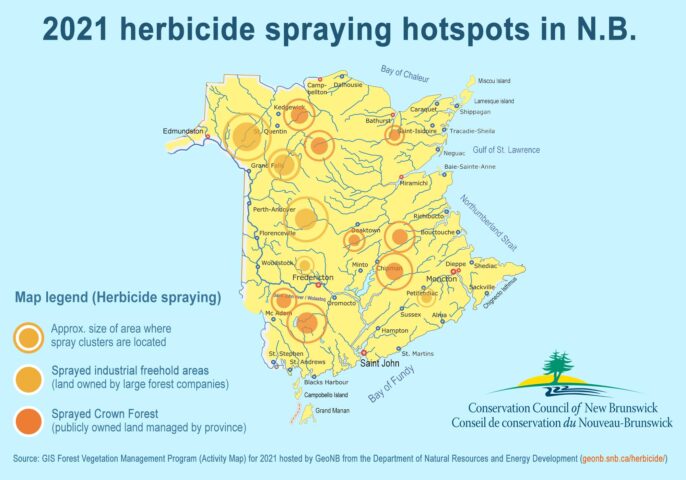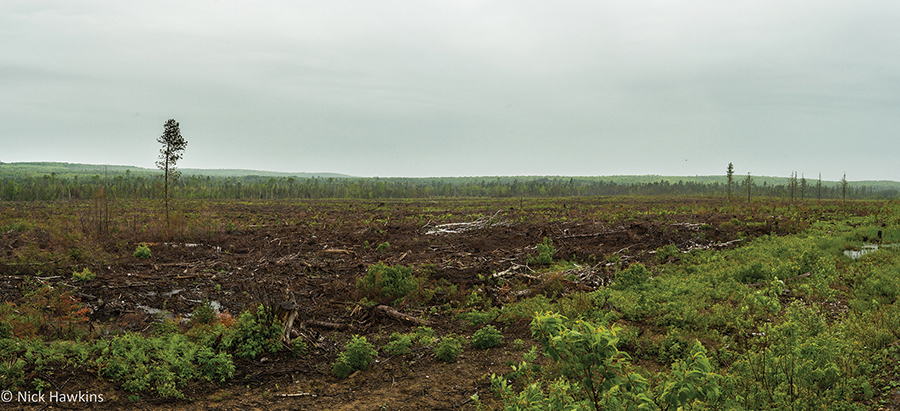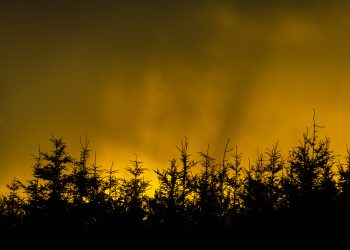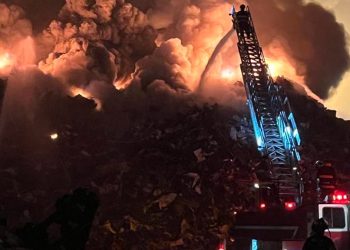J.D. Irving, the largest forestry company in New Brunswick, presented to the Standing Committee examining glyphosate use in our forest on the final day of public hearings late last month.
The company presented on Sept. 21— the day the committee was originally slated to begin deliberations on the evidence presented during the hearings in June and early September—following a letter from co-CEO Jim Irving to the committee chair saying he was “very disappointed” the company hadn’t been invited to the June meetings.
At committee, Irving said that a ban on glyphosate in the Crown forest “would be disastrous” for his company.
“It would impact our business dramatically if we can’t use herbicide. Very carefully, but we have to use it, at the present time, anyway,” Irving said.
Andrew Willet, J.D. Irving’s director of research and development, likened the 76 per cent of New Brunswickers who want a ban on glyphosate spraying in the woods to the pejorative ‘Karen’ stereotype, telling the committee, “We can’t make public policy and we can’t make public investments on something Karen from Facebook said or something we read on Google.”
When asked about alternatives to glyphosate in the forest, Irving first pointed to its use in agriculture.
“You know the piece of toast you had for breakfast? It’s got glyphosate. Or the corn flakes, or the sandwich you’re going to have at noon time, or the potato you’re going to have tonight. It’s (glyphosate) on it,” Irving said.
“We’re a very small part of that world, in the forestry business. It doesn’t mean we don’t want to be responsible … If we can find different ways to do it, we’re definitely going to do it — number one because it costs money, it’s expensive … and it’s controversial, and we’d like not to have controversy.”
J.D. Irving’s presentation to the committee claimed that clearcutting accounts for less than 50 per cent of harvesting across its operations.
The Auditor General’s 2015 forestry report found that over the last 20 years, 80 per cent of all wood harvested in the province was done by clearcut, whereas selective or partial cut had declined from 20 per cent to roughly 10 per cent.
The AG recommended at the time that the province heed the findings of numerous studies calling for a reduction of clearcutting on Crown land, saying selective and partial cutting methods are recognized as best management practices because they also serve to protect waterways, wildlife habitat, and preserve a healthy range of plant and animal life in the woods.
In her follow-up report released February 2021, Kim Adair-MacPherson said she was disappointed her recommendation for reduced clearcuts continued to be ignored.
Irving told committee members his company needed to use herbicides in order to stay competitive with countries like Brazil. “They will grow a tree 60-feet tall in six years in Brazil and they’ll put every kind of biocide out that you can imagine,” he said.
Brazil, under president Jair Bolsonaro, has expanded forestry and other industrial operations in the Amazon Rainforest, drawing widespread criticism from local and international observers for the rapid deforestation happening in the country.
Irving stressed repeatedly that New Brunswick is his company’s home, but that when it comes to their operations, neither the province nor its citizens are their primary concern.
“Our customers are all around the world. We’ll make enough lumber in our New Brunswick mills to build every house in New Brunswick in about seven days, for an annual supply of housing. Our tissue business will produce enough tissue paper in New Brunswick in about 12 days, 15 days to look after New Brunswick’s supply for a year.
“So, clearly, our markets are not here, they’re elsewhere,” Irving said.
David Coon, MLA for Fredericton South, asked for the company’s total revenue from wood products made in New Brunswick last year.
“I don’t give you that number. We’re a private company, we don’t have to disclose all our sales,” Irving said, adding he estimates 30 to 40 per cent of the company’s revenue comes from wood harvested on Crown land.
When asked by Coon to identify the company’s principal shareholders, Irving again refused to answer.
“I tell you, we’re a New Brunswick company … and it would be great if we could get, in the province of New Brunswick, on a positive beat about investment, about making the place go, so we can have the jobs and have the income that’s needed and required to pay the bills and make the place move forward,” Irving said.
Coon noted that Forbes Magazine recently estimated that the net worth of Jim Irving’s father, James, was $4.1 billion.
“Given how well the company has done over the years in New Brunswick, when you say that suspending or ending the use of glyphosate would be catastrophic for the company, it doesn’t quite stand up for me, given how well you’ve done,” Coon said.
The province of Quebec banned glyphosate spraying in its woods in 2001, largely due to public health concerns. Quebec uses manual vegetation control instead of chemicals in its silviculture operations and still benefits from a productive, profitable forestry sector.
You can watch J.D. Irving’s full presentation to the committee here.
Previously, the Standing Committee on Climate Change and Environmental Stewardship heard from scientists, citizens groups, First Nations, agriculture and forestry sectors, and environmental groups. The majority of presenters recommended an end to herbicide spraying on Crown land.
During our presentation in June, the Conservation Council’s Executive Director, Lois Corbett, told the committee that glyphosate is a symptom of a broader problem in our forests: outdated management practices, including large-scale clearcutting. She called on MLAs to recommend a ban on glyphosate use in the Crown forest and an update of the Crown Lands and Forests Act to ensure forest management is fair to citizens, First Nations and private woodlot owners.
If you missed any of the earlier hearings, you can find our rundown on what the committee heard from experts here.
Jon MacNeill is the communications director at the Conservation Council of New Brunswick. This commentary was originally published by the Conservation Council of New Brunswick.







![High levels of glyphosate in most patients with ‘atypical neurological diseases’: open letter [video]](https://nbmediacoop.org/wp-content/uploads/2023/07/OpenLetter-350x250.jpg)




